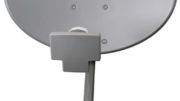I’m not terribly sure what to make of the latest statements by FCC chair Tom Wheeler. His recent blog post tells us that he’s decided not to follow up on reforming the rules that allow channel blackouts, yet he “summoned” DISH and Tribune to a meeting to review the blackout that’s still ongoing there, and when that didn’t work he promised to review things even further.
In the past, I’ve personally endorsed the idea of binding arbitration for channel retransmission disputes. (A reminder: my endorsement doesn’t reflect the opinion of Solid Signal, a DISH and DIRECTV dealer, nor does it reflect the endorsement of any of the parent companies. The lawyers make me say that.) But all that language aside, it seems to me that at some point if two companies can’t work something out, then it’s in the public interest to find some way to end a channel blackout. Obviously in a case like that neither side “wins,” but the subscribers get their stations back and there’s something to be said for that.
So now Mr. Wheeler says that he won’t change what are arguably broken rules, since they don’t stop two parties from walking away from the table and depriving millions of people of channels they’re paying for. When there’s a channel blackout, your cable or satellite company doesn’t reduce your bill proportionately because of the channels you don’t get, so there’s a certain element of unfairness there too, right? Who’s to blame for that?
I’ll tell you who’s to blame for that – content providers. I understand that it’s the cable and satellite companies who aren’t changing your billing during a blackout period, but if they did it would probably be a gigantic mess, and the real culprits here are the content providers who pull their programming. That’s what causes those blackouts. As far as I know, there has never been a case where a cable company blacked out programming without the content provider demanding it first.
The one thing that everyone seems to agree on here is that the current rules are a bit of a mess and the situation seems to get worse every year. DIRECTV just blacked out three stations in Boston and of course Tribune stations on DISH are blacked out all over the country. It’s only July, but at some point you’re going to see some impact here as we get closer and closer to fall TV rollouts. I predict that, as usual, these blackouts will be miraculously solved with just days to go before new programming hits, making the whole process seem kind of hypocritical.
So why won’t the FCC do anything about it? The FCC is a product of politics, far more than most people realize. Mr. Wheeler and the rest of the commissioners are political appointees, whose power derives from the Executive Branch. No matter who you are favoring, or if you don’t care for any of the candidates, the one thing that is certain is that come January 21 we’ll have a new President. That President may choose to appoint a whole new chairperson to the FCC, and that means that anything Mr. Wheeler chooses to do today could change. It takes months or years for the FCC to do anything, we’ve see that; starting something today means it’s virtually guaranteed to spill over into 2017.
Now, I’m not saying that the FCC should just check out and go to Maui until January, because there are obviously some other things to do, things that were started months ago that could actually be finished by the end of the year. I have to admit, though, I don’t know what they are. I sort of imagine the FCC as a bunch of people sitting in a room arguing over what they want on their pizza for lunch, up until the time they need to go home, and they do it all over again the next day. That’s probably not fair. I really don’t know what the commissioners do but they must do something.
After all, the government wouldn’t appoint a whole commission to just sit there, right?
Uhhh….
My point here is that if Mr. Wheeler isn’t going to act now to stop channel blackouts, perhaps his successor will, or perhaps he himself will during the next Presidential term. No matter what, I think it’s hard to avoid thinking that some sort of reform is needed since greedy content providers aren’t making things easy for anyone.




